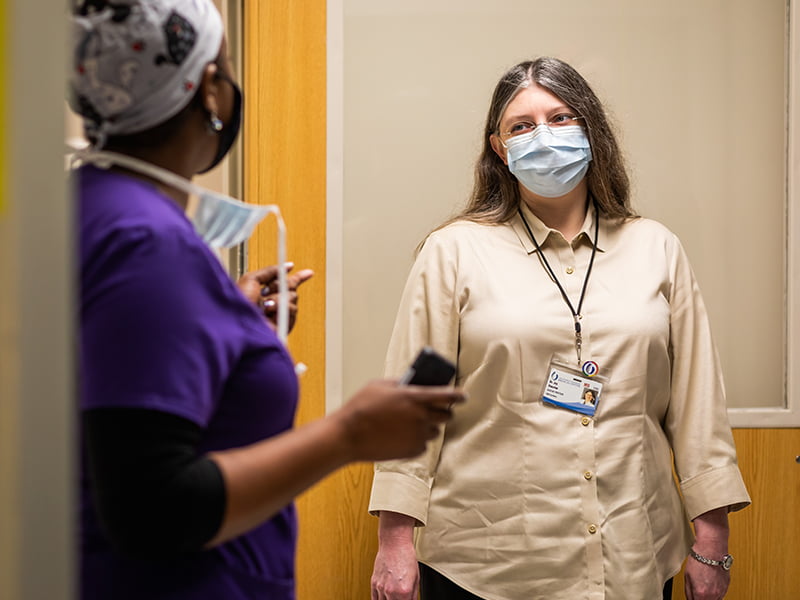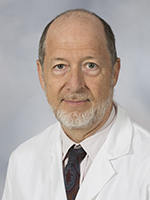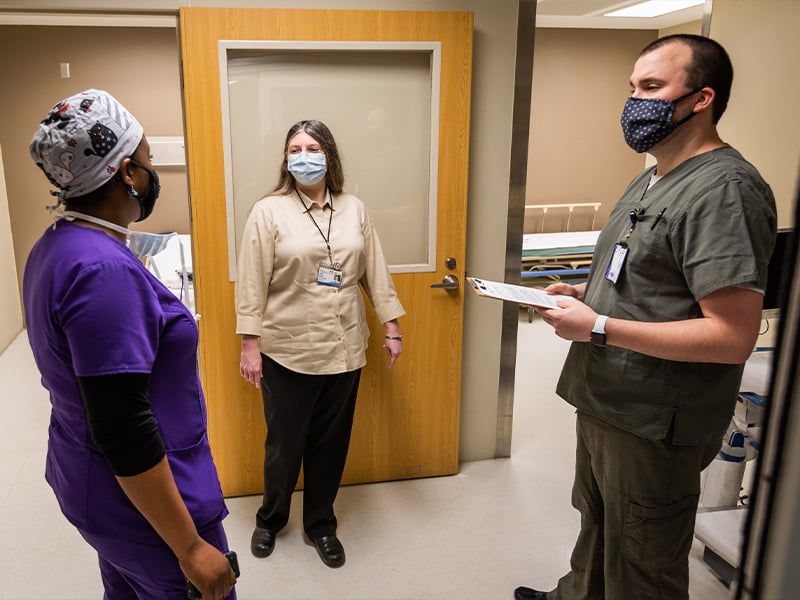COVID-19 isolation good for public health, worrisome for mental health

Social distancing and staying home to avoid transmission of the COVID-19 virus is good for public health, but that isolation can be deeply concerning for those with psychiatric issues that include suicidal tendencies.
“I’m concerned about patients who depend on their care, and now don’t have as good access as they did in the past,” said Dr. Jefferson Parker, professor of psychiatry in the University of Mississippi Medical Center’s Department of Psychiatry and Human Behavior.

In recent weeks, “I haven’t seen my patients very much because of the disruption of appointments due to the virus,” Parker said. “We have rapidly expanded telehealth and phone contact, and video technology can sometimes be as effective as an in-person visit, but that’s not available to everyone.”
A new opinion paper in JAMA Psychiatry is probing the effects of social distancing and other forms of isolation and how they can lead to an enhanced risk of suicide.
“Human connection is really good for people, and isolation is bad for people,” Dr. Ken Duckworth, the medical director of the National Alliance on Mental Illness, who was not involved in paper, said in a recent interview on the TODAY show.
“No social interaction will harm mental health, and less connection … is going to cause additional stress for people,” Duckworth said in that interview.
UMMC is ramping up in-person appointments at Psychiatry and Human Behavior’s clinic in the Riverchase Medical Suites, 2550 Flowood Road in Flowood. But many group meetings for patients coping with mental illness and addiction, such as Alcoholics Anonymous, have been canceled due to social distancing needs.
“The social interaction that occurs before and after a meeting, or a religious service, is important, and by and large we’ve lost that,” Parker said.
The timing of the pandemic is particularly dangerous for those with escalating stress from loss of income or job, fears about the food supply or inability to pay bills. Suicide rates have increased in this country for two decades, adding to some people’s risk factors.
In recent weeks, “there has been a spike in calls to the national suicide hotline,” Parker said. “That’s a good thing for people to make the call, but it’s not good if more people are suicidal.” That number is 1-800-273-8255.
If someone is considering self-harm, “one of the first things we tell those patients is to go to the Emergency Department. If they are still at home, that increases their risk because they’re not getting the help they need,” Parker said.

Health care front-line workers also may be at greater risk for stress- or anxiety-induced issues due to their role in responding to the effects of the virus. The recent suicide of a New York emergency room physician who succumbed to the pressures of caring for very sick and dying COVID-19 patients “was heart-wrenching,” Parker said.
“Even before that happened, emergency department personnel had a higher suicide rate than other hospital personnel,” he said. “There are acute consequences to seeing so many deaths. In many cases, these people are isolated from their own support systems.
“I do fear for them, and when this all quiets down, it will be important to step and help them meet their own needs.”
Dr. Joy Houston, an associate professor in Psychiatry and Human Behavior, cares for many patients in UMMC’s Emergency Department who need assessment for psychiatric issues including depression and anxiety, suicidal tendencies and psychotic episodes.
The virus “has actually shifted things for us toward people whose condition is more urgent in nature,” Houston said. “Our volume overall is down, but a larger percentage of those we see, we end up hospitalizing. It’s reassuring in that people who are coming in are people who we would want to come in.”
She and Parker urge those who have a mental health emergency to visit their emergency room. That’s far more important than concerns about COVID-19 infection, Parker said.
Visits by phone or via telehealth are making a difference for both established and new patients, Houston said. “We’ve certainly had an uptick in new patients in the last few weeks,” she said. “We really need that video link so that we can see them. That gives us so much more information about what someone’s mental status is.”
Although isolation can increase some patients’ risks, it can actually be good for others, Houston said. “For some of our patients, COVID-19 has almost been a respite,” she said. “For a number of them, it’s helpful to be at home and not to be expected to go out and interact.”
The Mississippi State Department of Health on May 1 reported almost 400 new cases of COVID-19 and double-digit deaths, and state health officials continue to urge residents to stay at home. Parker and Houston encourage those with mental health challenges, especially thoughts of suicide, to reach out to available support systems.
“For family members or friends who are concerned about someone else, this is the time of all times to reach out to each other and provide whatever support you can,” Parker said. “Don’t hesitate to call the hotline, reach the Emergency Department, or call your medical provider.
“This is a time when we need to rely on our support systems and sources of strength,” Parker said. “We are all in this together.”
UMMC employees and students needing help with COVID-19-related stress or anxiety have a number of avenues for help. They can call (601) 496-7234 weekdays between 8 a.m.-6 p.m. to speak to a Division of Psychology faculty member or trainee. For assistance after hours, click here.


